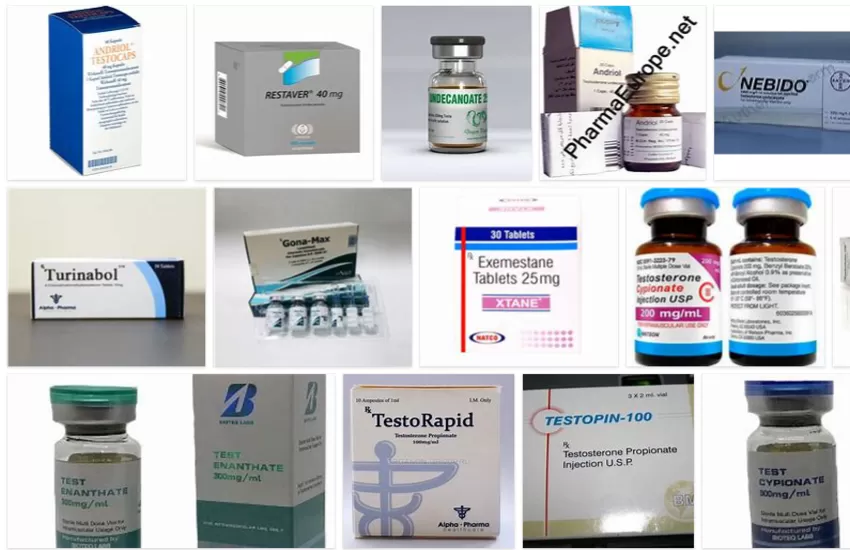Testosterone Undecanoate (Propecia)

Testosterone Undecanoate, also known as Andrographis, is an androsterone androgenic steroid drug which is prescribed mostly in the treatment of low testosterone concentrations in men. It is generally taken orally or intramuscularly, either by mouth or by injection to specific muscle. The dosage is usually decided after consultation with your doctor, taking into account your body mass index and other factors. Sometimes, lower doses of testosterone undecanoate may be suitable for men who have undergone radical prostatectomy, men who have had excessive exercise or those who have had minimal physical activity for a long time.
Like other testosterone undecanoate derivatives, this drug acts by interacting with androgen receptors and thus results in itsandrographism (reduction of testosterone and dihydrotestosterone levels). Its action can cause serious side effects in some patients, so it is usually given together with other drugs such as antiandrogens and precursors. These drugs include Prednisone, Dexamethasone and methylprednisolone, and in some cases, oral contraceptives may be needed. In an attempt to minimize the serious side effects, physicians often use a combination of testosterone undecanoate and other androsterone drugs (tablets) to achieve the appropriate balance in its metabolism and actions on the target cells. Although the combination of androsterone drugs has been found to be effective in certain instances, this combination is not recommended in general.
Common side effects of testosterone undecanoate are joint pain, fatigue, insomnia, hot flushes, decreased libido, moodiness, hair loss, enlargement of the liver, fluid retention, low blood pressure, hypoglycemia, osteoporosis, and acne. Because of its potential for causing serious side effects, this drug has been regulated to the point where it is available without a prescription in many countries. Nevertheless, the dangers of this drug are very real, and the best way to avoid its adverse effects is to consult your physician or a qualified pharmacist before taking this or any other medication. While rare, serious complications have also been reported from prolonged use.
Testosterone Undecanoate (MENT) For Your Andropause
Testosterone Undecanoate, also known as Andrographis, is a synthetic androsterone drug and anabolic steroid drug which is used primarily in the treatment of hypogonadism in men. It's often taken orally or directly into the muscle through injection. It's usually used as a replacement for testosterone or estrogen, but it can be used for body building also. Its effect on the body is not very strong. Testosterone Undecanoate affects the production of testosterone, an androgen, by interfering with the action of estrogen on the testes.
Testosterone Undecanoate is a synthetic form of the hormone testosterone that is excreted by the body from the testes. It has a long half-life when used topically, meaning it takes several months before it reaches its maximum level in the blood stream. A regular intake of testosterone undecanoate has shown to be effective in treating testosterone deficiency and obesity. Testosterone is the main male sex hormone that helps maintain muscle mass, fertility and sexual health.
There are many associated risks when using testosterone undecanoate including: difficulty developing erection, decreased libido, depression, rash, joint pain, and osteoporosis. Some of these side effects were reported after long-term use of the drug. Another common side effect of this androgen receptor agonist is hair loss. If you're taking the drug for acne, you may experience excessive hair growth.
If you're thinking about using testosterone undecanoate as a treatment for your andropause symptoms, it's important to discuss any medications, supplements, vitamins and foods you're currently taking. Any medications or supplements you take should be discussed with your doctor, especially if you have other conditions such as diabetes or hypogonadism. Before starting testosterone replacement therapy, you should also know and understand the possible side effects, which include sexual dysfunction, depression and sexual problems with an ejaculator. Sexual dysfunction can lead to reduced libido leading to decreased ability to sustain an erection.
Anaphylaxis refers to a swelling of the throat or airways. This results in difficulty breathing, difficulty swallowing and wheezing. A doctor will usually administer an intramuscular injection of epinephrine, which is a type of vasoconstrictor, in the case of andropause. Epinephrine has been found effective in treating allergic reactions. However, epinephrine is not an ideal treatment for andropause as it can cause further swelling of the face. It is also associated with an increased risk of asthma when used in an inhaler.
It is believed that testosterone undecanoate works by stimulating the androgen receptor in a similar way to the administration of an estrogen drug. The binding of the estrogen to the androgen receptor occurs in a stepwise manner, much like estrogen drugs. When testosterone esters are injected into the muscle tissue, the receptors respond by binding with the testosterone esters and preventing them from going through the muscle tissue. Testosterone and estrogen drugs can be administered orally as well, although the absorption and metabolization rates are different. Testosterone is absorbed more quickly by the body and excreted faster than estrogen.









